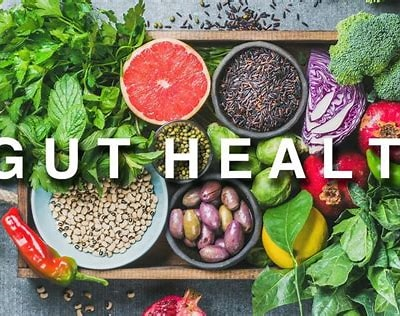Nurturing Your Gut Health with Natural Medicine

Gut health is at the heart of our overall well-being. Often referred to as the “second brain,” the gut plays a vital role not only in digestion but also in immune function, mood regulation and even mental clarity. When your gut is out of balance, it can manifest in various ways—bloating, fatigue, anxiety, skin issues and more. The good news is that nature offers a wealth of remedies to restore harmony and vitality from the inside out. By embracing natural medicine, we can support and nurture our gut health gently, sustainably and holistically. At the core of gut health lies the microbiome—a complex ecosystem of trillions of bacteria, fungi, and other microorganisms. These tiny allies aid in breaking down food, producing essential nutrients, and protecting us from harmful invaders. Natural medicine works by supporting this microbial balance, reducing inflammation, and enhancing the body’s innate healing capacity. 1. Herbal Remedies and Gut Healing Many herbs have long been celebrated for their digestive and healing properties. Slippery elm, marshmallow root, and licorice root are mucilaginous herbs that coat and soothe the lining of the digestive tract, reducing irritation and inflammation. Bitters like dandelion root, gentian, and artichoke leaf stimulate the digestive fire, aiding in the breakdown of food and promoting bile flow. Chamomile and peppermint are calming allies that ease cramping, reduce gas and support a relaxed gut. 2. Fermented Foods and Probiotics Fermented foods are nature’s probiotic powerhouses. Incorporating sauerkraut, kimchi, kefir, miso, and kombucha into your diet can significantly enhance your gut flora. These living foods introduce beneficial bacteria that help restore balance and strengthen the gut lining. For those who need extra support, probiotic supplements tailored to specific health needs can provide targeted relief and rebuilding. 3. Whole Foods and Prebiotic Fibres Natural medicine emphasizes a diet rich in whole, unprocessed foods. Fruits, vegetables, legumes, and whole grains are high in prebiotic fibers—non-digestible compounds that feed beneficial gut bacteria. Foods like garlic, onions, leeks, bananas and asparagus are particularly effective in encouraging microbial diversity. Avoiding processed foods, artificial sweeteners, and excess sugar is equally important, as these disrupt gut flora and contribute to inflammation. 4. Mind-Gut Connection and Stress Reduction The gut-brain axis is a dynamic communication network between the central nervous system and the gut. Chronic stress can wreak havoc on this connection, impairing digestion and altering microbiome composition. Mindfulness practices such as meditation, yoga, and breathwork—central to many natural medicine traditions—help regulate the nervous system and restore digestive harmony. Adaptogenic herbs like ashwagandha and holy basil also support stress resilience, indirectly benefiting gut health.
In nurturing your gut with natural medicine, you’re not just addressing symptoms—you’re cultivating a deep, sustainable foundation for long-term vitality. Listening to your body, respecting its rhythms, and using nature’s tools with intention can lead to profound shifts in health and well-being. A thriving gut is a thriving life.